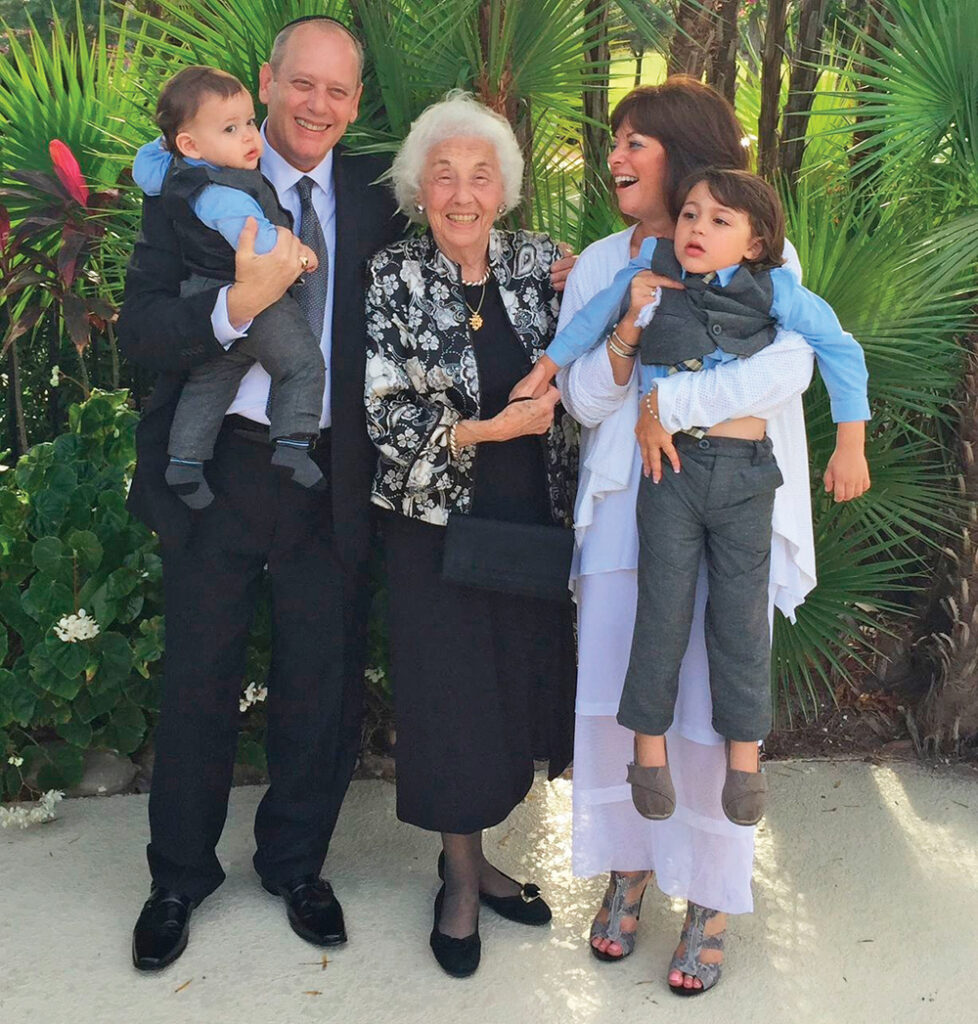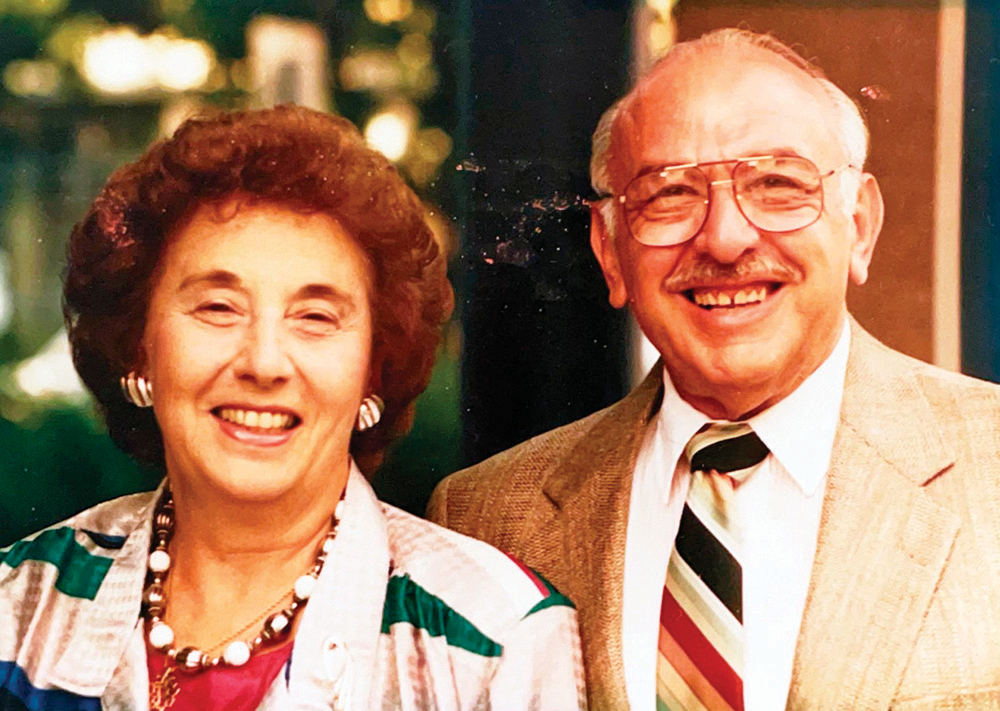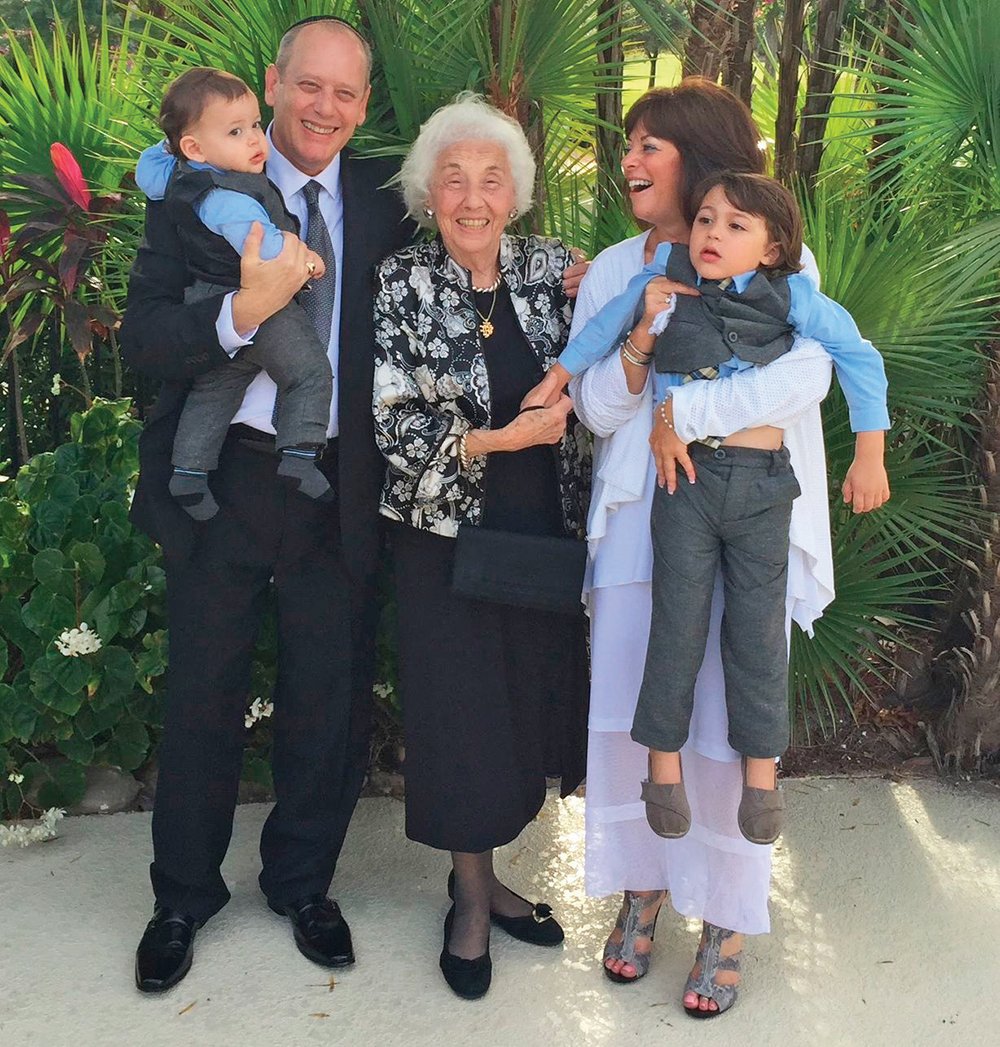
The Bergenfield/Teaneck community is known today for its flourishing Jewish life, with numerous schools, houses of worship, kosher restaurants and supermarkets. But if you rewind just 60 or so years, this infrastructure didn’t exist. The vibrant community can be credited to a few early pioneers. While their names may not be widely known, their impact is surely felt. Margaret Kohlhagen was one of those individuals. Together with her husband, Ernest, she was an early founder of the community, laying the groundwork for the Jewish life we now enjoy.
Margaret Kohlhagen was born in 1930 in Salzburg, Austria, in the years leading up to World War II. Born to Hilde and Otto Friedman, she and her family were destined for an idyllic European life. However, as history took a cruel turn, everything changed when the Nazis encroached on Austria. Through unimaginable strength, grit and resourcefulness, her parents managed to get Margaret and her brother out of the country with a Christian woman acting as their mother. The children were told they were going to camp. The family would be miraculously reunited, embarking on a years-long escape across Europe—from Switzerland to France—always staying just one step ahead of the Nazis until they finally reached America.
Upon arriving in New York, they were sponsored by the famous Grossinger family (of hotel fame). Margaret grew up in Queens, where she attended school and eventually met her husband at a dance at Hillel in City College. One of their classic stories goes as follows: He initially told her he was several years older to impress her and catch her attention. She would later say that as the story changed, she realized they were closer in age, eventually discovering that their birthdays were just one day apart. Together, they forged a new Jewish life in America as children of parents with unimaginable trauma, building their future in a new country.

who passed away in 2007.
They married and settled in the New Jersey suburbs—a rare move for observant Jews in those days—becoming integral to the growth of a Jewish community that was practically nonexistent at the time. The Kohlhagens were modest, humble and hardworking people. While their names may not be on buildings, their fingerprints can be found all over the fabric of the community for those who know where to look.
Back then, the stores and restaurants we love today didn’t exist. Margaret had to make the trek to Washington Heights just to get kosher meat—a labor of love filled with fond memories. But these conveniences don’t just appear—they are built, often by individuals with the foresight and determination to create something new.
In the early days, they were founding members of Congregation B’nai Yeshurun and made the trek across town to attend the fledgling minyan, one of the few in existence. Today, that walk would pass eight or nine other minyanim. In the 1960s, when Margaret’s father-in-law became ill and could no longer walk to shul, they decided to do something most people never get the chance to do—they started their own small minyan in their basement, out of a deep sense of honoring their parents. It wasn’t long before others in need of a place to pray joined them. Slowly, but surely, their small minyan began to grow, eventually becoming what we now know to be Congregation Beth Abraham. Margaret sewed the cloth for the mechitza and prepared the kiddush each week, laying the foundation for what would become a thriving Jewish community in the heart of Bergenfield.
In those early days, they sought the guidance and wisdom of the Lubavitcher Rebbe, who provided invaluable insight and inspiration. He shared the parable of a farmer who toils in the field and throws seeds out. Not all of them take, but the farmer keeps working. The Rebbe told them, only the good ones come up. You work as an act of faith and put your efforts in, and as we’ve seen—the good ones have really come up. This prescient guidance kept them going during difficult times and became a story told for generations.
Margaret was trained as a kindergarten teacher but became a professional volunteer, becoming a fixture at Englewood Hospital and local care homes, where she visited, comforted and advocated for those in need.
Margaret was also a strong Zionist and a loyal member of Hadassah. Her commitment to Israel was not limited to talk; she followed it with action. In 1971, long before it was popular, she arranged for her son’s bar mitzvah to take place at the Kotel, just four years after the reunification of Jerusalem in the Six-Day War. She recognized the promise and significance of this moment, and she lived to see her grandson and great-grandson celebrate their bar mitzvahs at the Kotel as well.
When we reflect on the message of a life, we realize that while our time here is fleeting, some people leave quiet, lasting imprints on the world around them. Margaret Kohlhagen was born into a very different world, thousands of miles away, but through her parents’ courage, her partnership with her loving husband, and her own faith and determination, she helped build a life and a community here. She never sought recognition, content to see the growth of what she helped create. A minyan that started in her basement blossomed into a congregation with hundreds of members in a community that now has all the support structures of Jewish life.
Margaret took humble pride in these accomplishments and in watching her offspring, including great-grandchildren, carry on the traditions she and her husband cherished and sacrificed for. It is a remarkable and unlikely story, one from which we are all beneficiaries in some way. Margaret Kohlhagen passed away at the age of 94 on Rosh Hashanah. We can all be grateful for the life she lived and the legacy she leaves behind.
Justin Kohlhagen is the proud grandson of Margaret Kohlhagen. He grew up in Bergen County and now lives with his family in Florida.










